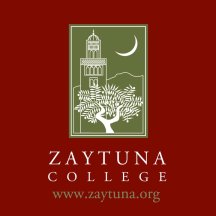
SOURCE: http://gordon.edu
Every religiously-affiliated college and university is discriminatory. The question is the degree to which the institution discriminates and how close those policies come to breaking policy with accrediting agencies and civil authorities. Right now Gordon College is navigating their niche in between these entities.
It is very difficult for a college to maintain its theological integrity when it places values on specific identities and behaviors while at the same time it seeks to expand it programs and ranking as an institution that is advancing potential careers of its students. It is easier for an institution to maintain its boundaries and grow when the social environment in which it sits is more conducive to its given worldview. Institutions like Liberty University or BYU are physically located in environments that are good matches with their policies and honor codes. Both are in very religious areas where the sponsoring denomination of the institution is in the majority of the religious adherents for the region. Internal policies will often have a much better match with civic policies.
Institutions like Gordon College have a different path to carve given that their own religious values may not be as well matched to the environment. This is where internal policy and external pressure find friction. Gordon College finds itself in an area that is less religious and politically liberal creating a disconnect between its worldview and that of the outlying communities. This is no more true than in Gordon College’s policy regarding homosexual behavior.
It is perfectly justified for the institution to have clear religious view on homosexual behavior as it is with many other institutions across the country. There is nothing inherently illegal in such policies as long as it is clear in all of the admission and enrollment literature. As with many evangelical institutions, especially those within the Council for Christian Colleges and Universities, Gordon requires students and faculty to profess their Christian faith commitment. This commitment assumes behavioral standards which are binding. The very first of these includes sexual conduct and homosexuality.
A. Practices Governed by Scripture—The following behavioral expectations are binding on all members of the Gordon community.
Those words and actions which are expressly forbidden in Scripture, including but not limited to blasphemy, profanity, dishonesty, theft, drunkenness, sexual relations outside marriage, and homosexual practice, will not be tolerated in the lives of Gordon community members, either on or off campus.
With this in mind, Gordon College is doing something different to address the needs of those in the LGBT community to feel safe at the college, even if the college does not affirm the lifestyles of lesbian, gay, bi-sexual, and transgender students. The core of the college policy has to do with behavior itself. So the issue for Gordon College is how to be both affirming of its students and clear about its conduct policy in a way that does not outright reject students who may not feel they fit its understanding of what a committed Christian looks like.
(President Michael) Lindsay said in his email that the college has spent the last nine months discussing the issue of human sexuality. On Monday the college announced a series of initiatives, including more training for staff, surveys to address the well-being of students as it relates to sexuality and sexual identity, stronger anti-bullying policies, and the formation of a task force of students, faculty and staff.
Opening up the conversation like this is a new direction for an evangelical college. It might not look like much from an outsider especially from a secular or liberal perspective. However, with the mishandling of sexual abuse that is at the forefront of higher education and the fallout of Bob Jones University’s egregious coverup, this has the potential to be a positive direction for how to handle a religious community that will only be more diverse in its sexuality if Gordon College does not become more prohibitive of the students it accepts.

